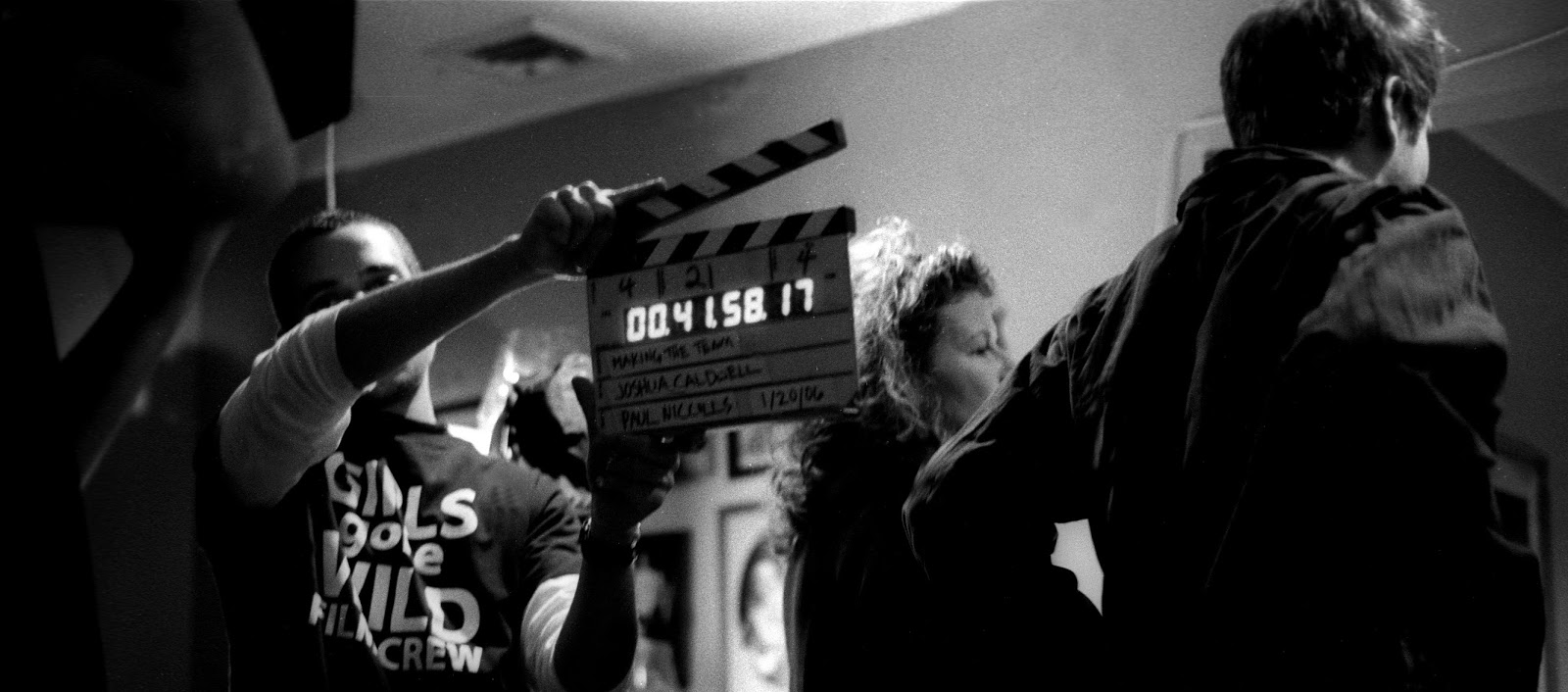UPDATE 8/27/14: With this post definitely gaining some traction, I want to clarify a few things:
1) I posted this following Franklin Leonard's call to post the comments side by side. Objectively, that's what the top half of this post was intended to show, how three different readers responded to my script.
2) The bottom "commentary" part was me musing about my experience paying for the Blcklst evaluation in the first place. I am certainly not comparing, from a feedback perspective, Nicholl vs. Blcklst. As disappointed as I felt about the BlckLst feedback, the Nicholl feedback is pretty much useless (unless, of course, I just wanted to hear how amazing Will and I are as writers, which I didn't).
3) This tipped off a really fantastic conversation on Twitter about paying for reads, etc, etc and I just want to say that the Blcklst provides a really great service to writers. What I was expecting from a paid evaluation wasn't in line with what evaluations typically provide. I don't want to be the guy saying "Blcklst evaluations are terrible and you should never pay for them." But I did find it to be a waste of money and having done it, probably wouldn't do it again. That's me. I didn't think the feedback I got was worth the money, considering I have other avenues of getting that feedback for free.
And now, to the original post.
__________________
With the Nicholl quarter-finalists receiving reader feedback this past week, Franklin Leonard of the Blcklst asked writers to post those comments in conjunction with any evaluations they've gotten from the Blcklst.
My feature script, STATE OF DECEPTION, did not make the quarterfinals of Nicholl but it did come close, placing in the next group of 100 scripts. As such, we received three reads on the script and were sent reader feedback.
So, here we go. Nicholl comments first, then Blcklst. If anyone is interested in reading the script, I'd be happy to pass it along.
Nicholl:
Comment 1:
This script brings a personal level of engagement to the political and religious controversy that holds Palestine in it's grip. As children, Aaron, a Jewish boy, and Habib and Sharif, Arab boys, are very close friends. Aaron even goes to jail for several years in exchange for helping Sharif's family. Aaron is released on the grounds of becoming a mole for IDF in Hassad, and discovers his friends are much more dangerous than he ever imagined.
This is a well-done story, adding human faces and emotions to the eternal struggle in Palestine. There is some nice character growth, and depth, which lends itself nicely to the escalating stakes that take place. There is a solid three act structure with scenes heightening stakes and tellings us about the characters. The story is effective in making the story relatable to Western sensibilities, and reminds the reader of all those individuals that are victims of circumstance rather than religious fervor.
There is a certain something about this one that shows talent for making larger issues personal, characters real, and situations suspenseful. This is nicely done, and it works well for me. There's some magic here in the story telling, and while the writing isn't overly descriptive, it's concise and effective.
Comment 2:
Normally I want to run for the hills as soon as I see a script set in the Middle East. I have no patience or interest in them usually, and they all feel like the same movie being placed in front of me over and over again. But this script was different. It felt like a story about a man -- it could be ANY man -- who made choices and must now deal with the ramifications. The politics of the movie are kept squarely in the background, which is perfect. The story then becomes about people. And the writer has done a good job of making the people relatable, without sacrificing the arena within which the story is set.
The writing here is really pretty good. The script was a breeze to read, and when the characters spoke in a different language, the writer not only had the translation, but also the original wording -- and scripted it in a way that it never slowed the reader down. The dialogue in general was top notch, and moved at a solid clip. It wasn't overwritten, or underwritten. The structure could have used a little work, though. It felt like the writer let the script breathe just a little too much. Not a ton, but if felt a little lengthy at times. And I often found myself waiting for the next bump-up to happen.
The story here is solid and well thought out, though there are moments when I found myself a little unclear as to what was going on in the moment. The craft was very, very solid. A strong piece of writing. The structure was a little loose as I said above. The characters were very well executed, and their dialogue was (for the most part) top notch. It was an original idea and there was certainly magic floating all around.
This was a solid script, and even though it's not my cup of tea per se, I really did enjoy it... and that should say something.
Blcklst:
Strengths:
Settings are rich, colorful, and bring to life locations which are, for most people, simply familiar names in the news. Meticulously researched. Aaron deals with plenty of conflict, both physical and mental. Moments of tension, action, and violence keep the pace moving. Character relationships are strong and believable, especially Majed and Aaron. Action is clear, violent, and intense.
Weaknesses:
Once they arrive in Gaza, it slows a great deal and meanders for too long. Though Gaza is well represented, it hurts the momentum built up to that point. Overly happy, unrealistic ending, with everyone living at the beach in the epilogue. Some of the research is forced in with monologues and characters telling Aaron things he should already know about the Israeli–Palestinian conflict. Underwhelming, action oriented climax, whereas it could have been something personal and tense.
Prospects:
A good story with strong writing, but due to the Middle Eastern subject matter and principals, it's a tough sell for audiences who get enough of this struggle in the news. But the writers deserve plenty of attention for the crafting of this intelligent, entertaining story.
_________________
_________________
Now, the evaluation I purchased from the Blcklst was the first time I had ever done it and to be honest, I was underwhelmed. While the weaknesses highlighted by the commenter are definitely right on, I don't know, it felt like it wasn't worth the $50. I feel like I could have had a friend read it and give me the exact same feedback. I wasn't looking for high praise but I guess I was looking for more detail? A deeper critique of the script?
It did make me far less likely to pay for an evaluation again because I just don't think it was worth the money. Clearly, others feel the differently and have gotten feedback that greatly helped them improve their script (and not that this won't) but I have too many other options that provide a more detailed response for free.
Curious to hear from others who may feel the same way. Have you purchased feedback from The Blcklst? What was your experience with it?


